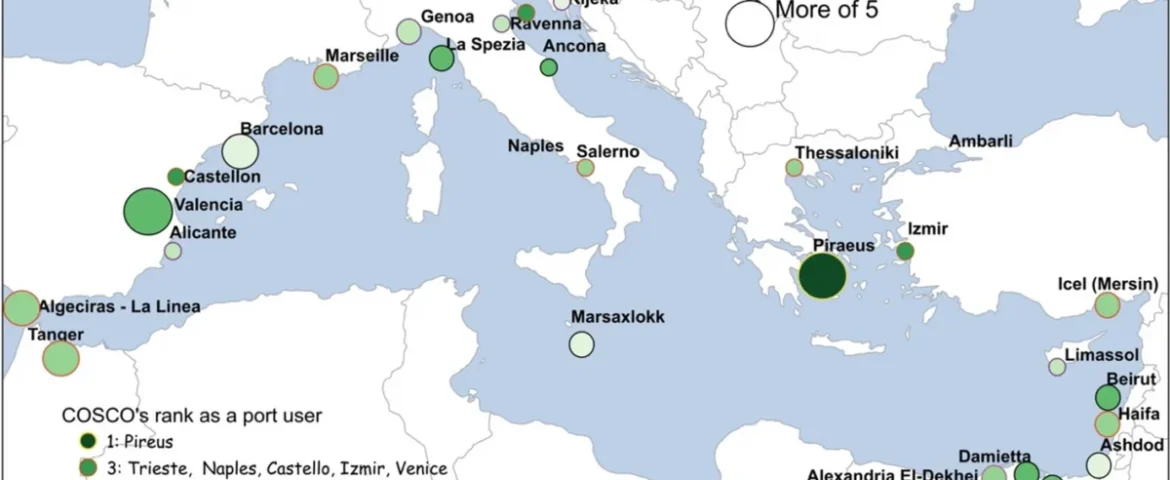By improving the connectivity between China and Europe, Chinese investments aim to redefine China’s position within global transport networks and logistics flows. The latest port study of PortEconomics member Jean-Paul Rodrigue with Ouail Oulmakki, Jérôme Verny (NEOMA Business School, Paris, France) and Andrey Hernandez Meza (HihgFi Lab/Unversité Sorbonne-Nouvelle, Paris, France) explores the evolution of port activity in the Mediterranean following the implementation of investment strategies through an analysis of container flows and the impact generated by China on the Mediterranean ports. It compares port centrality to assess what influences the Belt and Road Initiative has had on containers flows from its inception until 2019 (pre Covid-19 pandemic).
The main results underline that during its inception phase, the BRI had no discernable impacts on port polarization. Further, trade imbalances decreased and even slightly grew in favor of Mediterranean countries. The presence of Chinese investors, COSCO and China Merchants Group, in port operations impacted regional dynamics, mainly in the port of Piraeus in Greece, which became a hub. Connectivity between the main Mediterranean ports and China grew considerably after the BRI, especially with Egypt, Spain, and Morocco, where Chinese port investments have been considerable. The ports receiving the most Chinese investments see the most significant changes in their ranking in the regional port system.
The port study was published in the Journal of Shipping and Trade and can be downloaded here.












